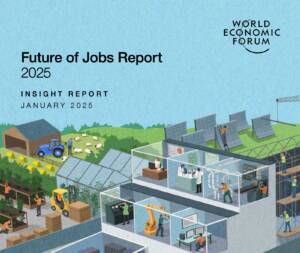 Anticipating the future of work is no longer a topic for quiet debates in the corridors of international institutions. It is a tangible, everyday challenge that calls on our regions, businesses, schools, and youth. Recently, the Future of Jobs 2025 report by the World Economic Forum unveiled perspectives that are both stimulating and unsettling. As collective actors in Marrakech-Safi, through EBF, CGEM, and the Consultative Instance for Youth, we feel the urgency and responsibility to be part of the solution.
Anticipating the future of work is no longer a topic for quiet debates in the corridors of international institutions. It is a tangible, everyday challenge that calls on our regions, businesses, schools, and youth. Recently, the Future of Jobs 2025 report by the World Economic Forum unveiled perspectives that are both stimulating and unsettling. As collective actors in Marrakech-Safi, through EBF, CGEM, and the Consultative Instance for Youth, we feel the urgency and responsibility to be part of the solution.
Nearly 39% of current skills will become obsolete by 2030. Imagine for a moment—two out of five employees will need to relearn how to work to remain relevant. In a region like ours, characterized by a predominant rural landscape and a youth eager for opportunities, this statistic is not a threat: it is a call to action. For instance, an agricultural worker could be trained to maintain solar irrigation systems, becoming a key player in the local green economy.
In this spirit, initiatives driven by various local, regional, national, and international actors are multiplying. Consider programs like “Connecting Rural Economies” with the Near East Foundation or economic recovery projects in the province of El Haouz with GIZ. Our recent agreements with ANAPEC, alongside ongoing partnerships with key players such as the Regional Investment Center Marrakech, the Wilaya of Marrakech-Safi, and its Directorate of Social Affairs, demonstrate this collective commitment. These efforts support the private and civil society ecosystems in becoming driving forces for developing solutions. The issue of work and dignity truly concerns us all. These collaborations converge to create tangible opportunities addressing challenges such as digital transformation, the green economy, and youth empowerment. Each project—whether connecting agricultural cooperatives to markets or strengthening entrepreneurial capacities—proves what convergence can achieve in the face of the 2030 challenges.
As global trends—from the energy transition to artificial intelligence—reshape the nature of work, Marrakech-Safi can position itself as a laboratory for social and economic innovation. Every local initiative, whether from a cooperative, a business, or an institution, contributes to demonstrating that change can be a force for building an inclusive and sustainable future.
With committed partners and public and private actors united around a common vision, these initiatives represent much more than a series of achievements. They are a message of hope and an invitation to act together to transform challenges into concrete opportunities.
But are we ready to face the unpredictable challenges of tomorrow? Can we imagine new ways to collaborate, create, and inspire? What if every local initiative were a spark for global change? There are so many uncertainties, but also immense excitement at the prospect of participating, contributing, and becoming, together, the architects of a future we do not yet fully dare to dream.


